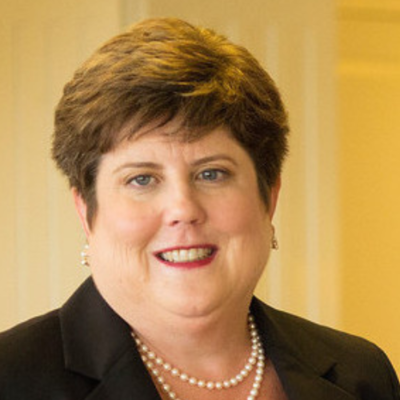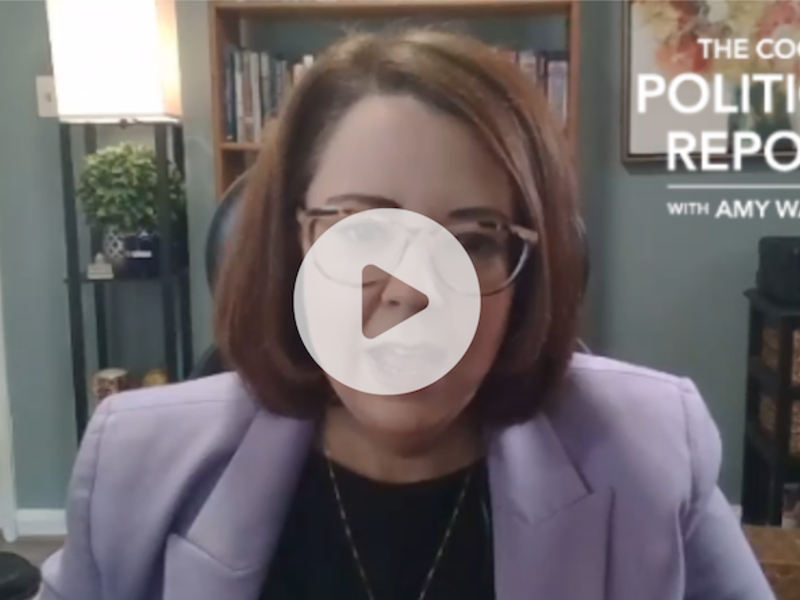
When Supreme Court Justice Anthony Kennedy announced June 27 that he would retire from the bench, he set off another round of one of Washington’s favorite parlor games involving the U.S. Senate: Confirm (or Not) the SCOTUS Nominee. The game begins with rampant speculation about who will be nominated and which Senators will vote for or against the as-yet-to-be-named nominee. When President Trump nominated U.S. Court of Appeals Judge Brett Cavanaugh 12 days later, the game progressed to the next level.
On it’s face, this appears to be a very sophisticated game that requires a heavy dose of strategic thinking to navigate through hundreds of possible outcomes. What will happen to Senator X if he votes for (or against) the nominee? Will it destroy (or boost) his chances for re-election? Who will be the deciding vote? Which Senators will abandon their party? And what about the minority party: will obstructing a nominee satisfy their base or simply infuriate the majority party’s voters?
In fact, the game of Confirm (or Not) the SCOTUS Nominee is more like few rounds of Connect4 (although at times it looks like Hungry Hungry Hippos) than a Grandmaster Chess tournament. This is not to diminish the importance of the confirmation process or the path any individual Senator takes on their way to a decision. It is, however, a reminder that the game isn’t nearly as sophisticated or as unpredictable as the media and Senate watchers often like to believe that it is.
There are two ways of looking at the process of confirming a Supreme Court nominee: through the eyes of each party, or through the eyes of individual Senators. When it comes to Kavanaugh’s confirmation, Republicans’ task is pretty straightforward. They need to guide the nominee through individual meetings with Senators and through the hearings, and keep the members of its conference on board. So far, it appears that they are on their way to accomplishing both.
Democrats’ task is inherently trickier. First, Minority Leader Chuck Schumer is not going to be able to keep all 49 Democrats in the fold. Second, he needs to decide how much of a fight to put up, knowing that the party’s odds of denying Kavanaugh’s confirmation are ultimately almost nonexistent. That doesn’t mean that Schumer doesn’t have to consider the desires of several constituencies.
The first (and loudest) constituency is interest groups that run the gamut of issues from abortion to LGTBQ rights, labor and the environment. In their view, Schumer should shut down the Senate until after the mid-term elections in November in the hope that Democrats will win the majority. They are joined in this sentiment to some degree by some of the more progressive Democratic Senators. But, this strategy carries a great risk as it will infuriate the Republican base, which thus far has not been nearly as enthusiastic about this year’s elections as Democrats have. Given the risk/reward ratio, how far does Schumer have to go to satisfy these two groups?
Then there is a group of Democratic Senators largely comprised of Senators up for re-election this cycle who sit in red and purple states who view Kavanaugh’s confirmation as a weeks-long root canal. For most of them, this is a terrible no-win vote, regardless of which side they take. In truth, they just want it to be over. As such, they want Schumer to let the confirmation vote proceed quietly and expediently.
In the end, it is safe to say that none of these constituencies is going to get what they want. The one consolation that Democratic Senators are getting is that the confirmation process is a boon for their fundraising. If my email is any indication, Democrats are stepping up fundraising requests. In the days following the Kavanaugh announcement, interest groups focused on the need to defeat him while Democratic Senate incumbents and challengers put their energy into raising money.
Putting party strategies aside, the other lens through which to watch the SCOTUS confirmation process is through individual Senators. While both Schumer and Majority Leader Mitch McConnell would like to keep their respective members in the party fold, a SCOTUS confirmation vote is not conducive to asking any member to take one for the team. Not surprisingly, both parties have a number of members who have the potential to stray from their party to support/oppose Kavanaugh. For the purposes of this discussion, I’ll issue the mandatory disclaimer that how individual Senators vote assumes that there are no skeletons in Kavanaugh’s closet or no smoking guns waiting to be uncovered. With that out of the way….
There are four Republican Senators who could potentially stray off the confirm Kavanaugh reservation: Sens. Susan Collins of Maine, Jeff Flake of Arizona, Lisa Murkowski of Alaska and Rand Paul of Kentucky. By all accounts, Collins and Murkowski seem inclined to support Kavanaugh, much to the chagrin of Democrats. In his official statement, Flake appears to be focused on one criterion: “As I have said before, approving a nominee who will interpret the Constitution rather than legislate from the bench should be our top priority.” There aren’t any indications that Kavanaugh won’t clear this hurdle. Paul issued a pretty neutral statement via Twitter: “I look forward to the upcoming hearings, reviewing the record, and meeting personally with Judge Kavanaugh, with an open mind.” Paul watchers say that he is concerned about Kavanaugh’s views on the 4th Amendment and a Constitutional right to privacy, which shouldn’t come as a big surprise given how much time Paul spends on privacy issues. GOP strategists say that they are confident that Kavanaugh can put Paul’s concerns to rest.
The bottom line is that Republican appear very likely to hold all of its members, save Sen. John McCain of Arizona, who is absent due to illness. This is disappointing for Democrats in that Republican defections are really the only chance they have to block Cavanaugh’s confirmation. It will also make it more difficult for Schumer to keep his members united against Kavanaugh.
Most of the attention paid to how individual Senators will vote on Kavanaugh has focused on Democrats who will be on the ballot in November, particularly the 10 running in states that President Trump carried in 2016. Some of these incumbents have already announced their intentions. Sen. Bob Casey of Pennsylvania (Trump +1) indicated he wouldn’t support anyone Trump nominated, saying, “I will oppose the nomination the president will make tonight because it represents a corrupt bargain with the far right, big corporations, and Washington special interests.” Sen. Tammy Baldwin of Wisconsin (Trump +1) issued a statement July 12 outlining her opposition. She said in part, “The people of Wisconsin need a fair, impartial and independent Supreme Court Justice who will stand up for them, not for powerful special interests. I don’t have confidence that Judge Kavanaugh would be that justice.”
As for the remaining eight who haven’t made their decision public, there are a couple of ways to predict how they will vote. The first is how they voted on the SCOTUS nomination of Neil Gorsuch in early April of 2017. Sens. Casey, Baldwin, Sherrod Brown of Ohio (Trump +6), Claire McCaskill of Missouri (Trump +19), Bill Nelson of Florida (Trump +1), Debbie Stabenow of Michigan (Trump +<1), and Jon Tester of Montana (Trump +20) all voted against Gorsuch. Sens. Joe Donnelly of Indiana (Trump +19), Heidi Heitkamp of North Dakota (Trump +36) and Joe Manchin of West Virginia (Trump +42) all voted in favor of Gorsuch’s confirmation. For the record, GOP Sens. Collins, Flake, Murkowski and Paul all supported Gorsuch.
Endorsements from Democratic groups like EMILY’s List or NARAL Pro Choice America is another indicator of how some of these Democrats will vote. Both groups oppose Kavanaugh on abortion rights, among other issues. Any Senator who votes for Kavanaugh would certainly lose the support of these groups. EMILY’s List has endorsed Baldwin, McCaskill and Stabenow. NARAL has endorsed Baldwin, Brown and Tester. As such, it would be very surprising to see anyone in this group support Kavanaugh.
Votes against Kavanaugh may only have a marginal impact on Baldwin, Brown, Casey, Stabenow and Tester. This doesn’t mean that Republicans will take the issue off the table in the campaign, only that these five members are in a better position to withstand these attacks than some of their colleagues.
Of the seven Democrats who voted against Gorsuch, the Kavanaugh confirmation vote holds the most risk for McCaskill, who has relied on Republican-leaning rural voters to win and keep her seat. McCaskill doesn’t have any good options here. This was clearly reflected in the neutral statement she released after the Kavanaugh announcement. “I look forward to thoroughly examining Judge Kavanaugh’s record in the coming weeks as the Senate considers his nomination to replace Justice Kennedy.”
If McCaskill votes for Kavanaugh’s confirmation, she risks losing endorsements (and campaign contributions) from groups like EMILY’s List and angering Democratic base voters, something that she can’t afford since she is already struggling to energize African Americans. But, voting against Kavanaugh is likely to cost her much-needed votes in rural areas and wake up Republican base voters. McCaskill has always said that she votes for Missouri’s interests, not her party’s interests, but Republican voters would see a vote against Kavanaugh as the last straw.
There is also some risk for Florida’s Nelson, but Florida is decidedly purple, meaning that the Democratic and Republican bases are roughly equal. As such, the Democratic base may be able to sustain Nelson’s re-election.
Based on their past votes for Gorsuch and how solidly Republican their states are, Sens. Donnelly, Heitkamp and Manchin seem poised to support Kavanaugh, although none has said so yet. All have said positive things about his qualifications, are looking forward to their one-on-one meetings with him, and promise to spend a lot of time listening to their constituents. Votes in favor of Kavanaugh are likely to win them some good will among Republican voters, although GOP strategists contest that proposition. If any of the three decide to vote against Kavanaugh, their already difficult bids for re-election would become even tougher.
While Kavanaugh’s confirmation seems to be something close to a fait accompli, barring an unforeseen event, that doesn’t mean that both sides won’t mount aggressive and expensive campaigns to press their views. At least eight Democrats and a few Republicans will be bombarded at home with television advertising, while their offices will struggle to keep up with the tens of thousands of emails, snail mail and phone calls that will arrive between now and October. As for the Senators themselves, they are already being dogged by reporters in the Capitol (and there are only so many ways to avoid them) and they can expect a similar reception at home. They won’t go many places without encountering both protesters and supporters. By the time hearings get underway, the vote won’t come fast enough for many members.
Many Democrats think it’s unfair that Kavanaugh will even get a vote before the elections in November, but this is yet another object lesson for both parties that elections matter and have consequences.
Image: Schumer and Democratic senators conduct a news conference in the Capitol to oppose the nomination of Brett Kavanaugh | Credit: CQ Roll Call via AP Images










Subscribe Today
Our subscribers have first access to individual race pages for each House, Senate and Governors race, which will include race ratings (each race is rated on a seven-point scale) and a narrative analysis pertaining to that race.